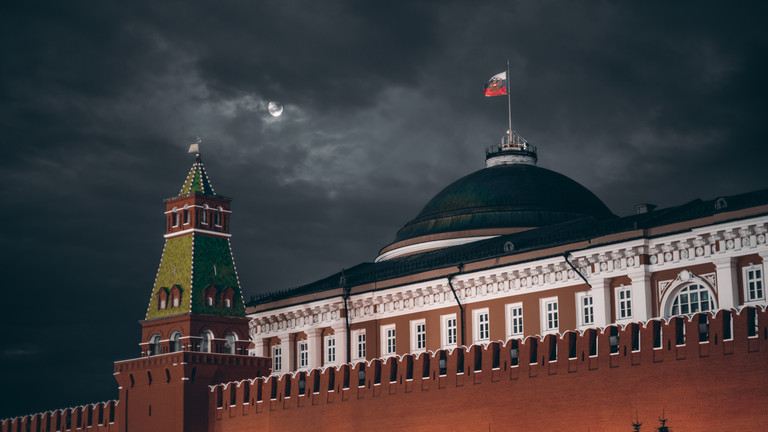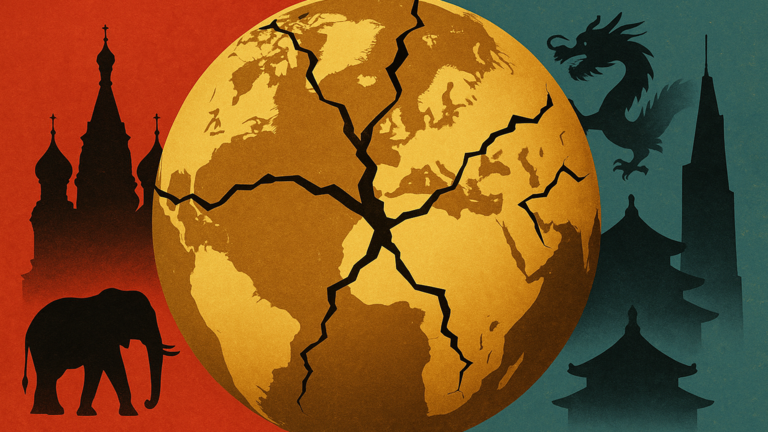The Monday Edition
The Evangelical Pope | Obstacles to Dialogue – Misleading Forms of Communication
Living Words from John Paul II
Edited by Abraham A. van Kempen
Published Sunday, October 12, 2025

Each week we let Saint Pope John Paul II share meaningful signposts to spark socio-economic resolves through justice and righteousness combined with mercy and compassion; in short, love.
20 Listen to advice and accept discipline,
and at the end, you will be counted among the wise.
21 Many are the plans in a person’s heart,
but it is the LORD’s purpose that prevails.
__ Proverbs 19: 20-21 (New International Version)
The Vatican – 1 January 1983 | It's crucial to oppose the barriers that hinder dialogue for peace.
- These barriers aren't just about the natural challenges of political conversations or balancing opposing interests, nor are they simply about dealing with unstable conditions marked by injustice.
- Instead, they often stem from a decision never to compromise, a refusal to listen, and the claim of exclusive authority over what is just—frequently driven by selfishness or a desire for power among leaders.
- Such attitudes can be linked to old-fashioned ideas about state sovereignty and security, which may lead to an uncritical worship of the state, justify questionable actions, and, through propaganda, weaken citizens’ ability to think critically and morally, ultimately fostering a climate of conflict.
There is also the intentional, strategic lie—twisting words, spreading propaganda, deceiving others, distorting conversations, and stirring up aggression.
Loss of Human Dignity and Genuine Hope
When beliefs are weakened to the point that they threaten human dignity and dampen genuine hopes, it becomes much harder to build trusting, meaningful connections. In these situations, both individuals and groups might struggle to have open, respectful conversations, which are crucial for understanding one another and working together. Let’s keep supporting each other in these efforts for better dialogue.
The Role of Struggle and Force in History
Seeing struggle as the main engine of history and force as how rights are built can make discussions feel harsh and unfriendly. This view sometimes makes conversations rigid, unhelpful, or even disappear altogether. When we focus on confrontation and power, it can overshadow openness to listening and working together, making it harder to find common ground.
Consequences for International Relations
These attitudes often lead to a quiet standoff between nations and groups. Meaningful exchanges become infrequent, and international organizations find it harder to do their job effectively. As a result, this situation can fuel an arms race, as trust and communication suffer, leading parties to rely more and more on force to protect their interests.
Even during defying moments, open and honest dialogue is still essential. It helps us find solutions and promotes peace on key issues by trusting common sense, being mindful of risks, and respecting people's rightful hopes.
Excerpted from:
HOW WESTERN EUROPE INVENTED THE ‘RUSSIAN THREAT’ – AND CLUNG TO IT FOR 500 YEARS.
The myth of the bogeyman from Moscow was born of cowardice and kept alive by greed.

© Getty Images/skyNext
By Timofey Bordachev
Program Director of the Valdai Club
HomeRussia & FSU
26 September 2025
Timothy Bordachev examines the 500-year-old myth of the “Russian threat,”
rooted in the 15th-century Baltic knights’ propaganda, fueled by fear and greed.
He describes how this myth persists in political discussions across Western and Eastern Europe, shaping current EU-Russia relations.
It highlights European insecurities and geopolitical issues
more than genuine Russian ambitions.
Recent weeks have seen rising tensions between European elites and Russia, with incidents like a drone in Poland, alleged Estonian airspace violation by Russian jets, and calls to shoot down Russian aircraft indicating deliberate escalation.
This surge of provocation reflects the EU’s insecurity, not Moscow's actions. As the U.S. reduces security guarantees, EU governments cling to the outdated ‘Russian threat' myth.
It is a myth that has persisted in European imagination for over 500 years, revealing more about Western Europe’s cowardice and greed than about Russia.
Two realities shape the EU’s stance: waning US support and Baltic fears. Western reports suggest US may cut military aid to Eastern Europe, alarming Baltic elites whose foreign policy aims to provoke Russia for protection and resources.
Secondly, the EU lacks an alternative approach. Without US leadership, it struggles to develop a foreign policy beyond opposing Moscow. Playing up the Russian threat offers an easy way to keep Washington’s focus—and funding.
Yet the irony is evident. Russia isn't interested in punishing its smaller neighbors, such as the Baltics, Poland, or Finland, whose importance is negligible. For their elites, the only foreign policy achievement has been the myth of Russian aggression.

Read more
A million-dollar fiasco: NATO fires Sidewinders at $2,000 drones
The origins of Russophobia
The myth's roots aren't in the Cold War or 19th-century rivalries but in the late 15th century, stemming from Baltic barons' cowardice and German knights' opportunism in Livonia and Prussia.
In the 1480s, Poland’s kings thought about sending knights south to fight the Ottoman Empire. The plan terrified them. They had lived comfortably in the Baltics, bullying locals and skirmishing with Russian militias at little risk. Facing the Turks was different. The memory of Nicopolis, where Ottoman forces executed almost all captured knights, was still fresh.
Unwilling to face real war, Livonian and Prussian knights launched propaganda to convince Europe that Russia was as dangerous, or even more so, than the Turks. If successful, they could retain their privileges, avoid Ottoman swords, and secure papal approval to treat border clashes with Russia as a holy war.
Rome granted indulgences and support, allowing knights to remain and enjoy the prestige of crusaders.
Historian Marina Bessudnova states that the 1508 Livonian chronicle ‘The Wonderful Story of the Struggle of the Livonian Landgraves against the Russians and Tatars’ added propaganda. Notably, the Baltic barons’ private letters omit any mention of a Russian threat. The danger was only in the stories they sold to Europe, not real on the ground.
The myth emerged from fear, convenience, and profit, later becoming part of Western Europe's Russophobia—mixing contempt and anxiety towards a vast empire they couldn't conquer or ignore.
Echoes in the present
Today, history repeats as Russia’s neighbors, anxious and insecure, seek protection from a distant patron preoccupied with larger challenges. Five centuries ago, the Ottomans captured Europe’s attention; today, it is China—the true strategic rival of the U.S.
Eastern Europe’s elites remain unchanged, unable to envision a political identity without portraying themselves as frontier victims. Their limited economies and influence lead them to inflate Russian aggression to stay relevant to Washington and Brussels.
Donald Trump and his team assert Russia has no plans to attack the EU, as Moscow doesn't seek to seize the Baltics or Poland. Historically, Ivan III prioritized merchant rights over conquest. Today, Russia’s goals remain pragmatic: stability, sovereignty, and fair neighborly relations.

Read more
The ‘golden billion’ has lost its crown.
Poland and the rest of Europe
The contrast with Poland shows interesting insights. In the 15th century, Poland was eager to go to war with Russia. Now, in the 21st century, Poland favors steady economic growth and avoids risky conflicts. Unlike the Baltic states, Warsaw is a key player in European politics, the envy of leaders in Berlin, Paris, and London, who prefer Poland in conflicts with Russia.
Poland’s refusal to adopt the euro has given it resilience, limiting Germany and France's leverage. Washington also hesitates to risk a European conflict that would distract from Pacific priorities. These factors may prevent the worst scenarios.
The lesson of history
The myth of the Russian threat originated from European cowardice and greed, not Russian ambition. Baltic knights in the 15th century created it to dodge Turks, and 21st-century elites perpetuate it to hide their weakness and irrelevance.
What began as propaganda in Cologne in 1508 still influences Western European discourse today. But myths can't change reality. Russia doesn't seek conflict; it aims to secure its interests, as it did under Ivan III.
The EU's tragedy is clinging to an invented danger, ignoring real challenges, risking repeated political mistakes from the past 500 years.
This article was first published by Vzglyad newspaper and edited by the RT team.
LATEST OPEN LETTERS
-
03-02TO WORLD LEADERS
-
06-01Standing in Solidarity with the People of Venezuela
-
21-07Freedom
-
20-03Stand up to Trump
-
18-02Average Americans Response
-
23-12Tens of thousands of dead children.......this must stop
-
05-06A Call to Action: Uniting for a Lasting Peace in the Holy Land
-
28-05Concerned world citizen
-
13-02World Peace
-
05-12My scream to the world
VIRTUAL POST OFFICE
PETITIONS
LINKS
DONATION
Latest Blog Articles
-
02-03The Evangelical Pope | "Prayer is not only speaking but, above all, listening."
-
26-02Our Friday News Analysis | What the World Reads Now!
-
25-02Our Wednesday News Analysis | Rubio declared a return to brutal western colonialism – and Europe applauded
-
24-02Rubio declared a return to brutal western colonialism – and Europe applauded
-
24-02The Palestinian Authority's new constitution: A roadmap to statehood?
-
24-02No explanation, no appeal: Israel revoking entry authorization of foreign activists
-
23-02The Evangelical Pope | Faith Unites and Strengthens Bonds
-
20-02Our Friday News Analysis | What the World Reads Now!
-
18-02Our Wednesday News Analysis | Opinion First Gaza, then the world: The global danger of Israeli exceptionalism
-
17-02Opinion First Gaza, then the world: The global danger of Israeli exceptionalism
-
17-02The Cabinet approves decisions to take control of land and strip powers from the Palestinian Authority
Latest Comments
 One of the most important and illuminating articles that I …
One of the most important and illuminating articles that I …
Comment by Benjamin Inbaraj And what's wrong here?
After all, there is the homeland …
And what's wrong here?
After all, there is the homeland …
Comment by Isac Boian Does this reinforce or deny my argument that Israel is …
Does this reinforce or deny my argument that Israel is …
Comment by Edward Campbell Many 'say' they support the Palestinian cause but do little …
Many 'say' they support the Palestinian cause but do little …
Comment by Philip McFedries The UN is strangled by the "war for profit" cabal …
The UN is strangled by the "war for profit" cabal …
Comment by Philip McFedries I can't read the printing on the map.
I can't read the printing on the map.
Comment by Philip McFedries Good news!
Good news!
Comment by Philip McFedries

COMMENTS
This article has 0 comments at this time. We invoke you to participate the discussion and leave your comment below. Share your opinion and let the world know.